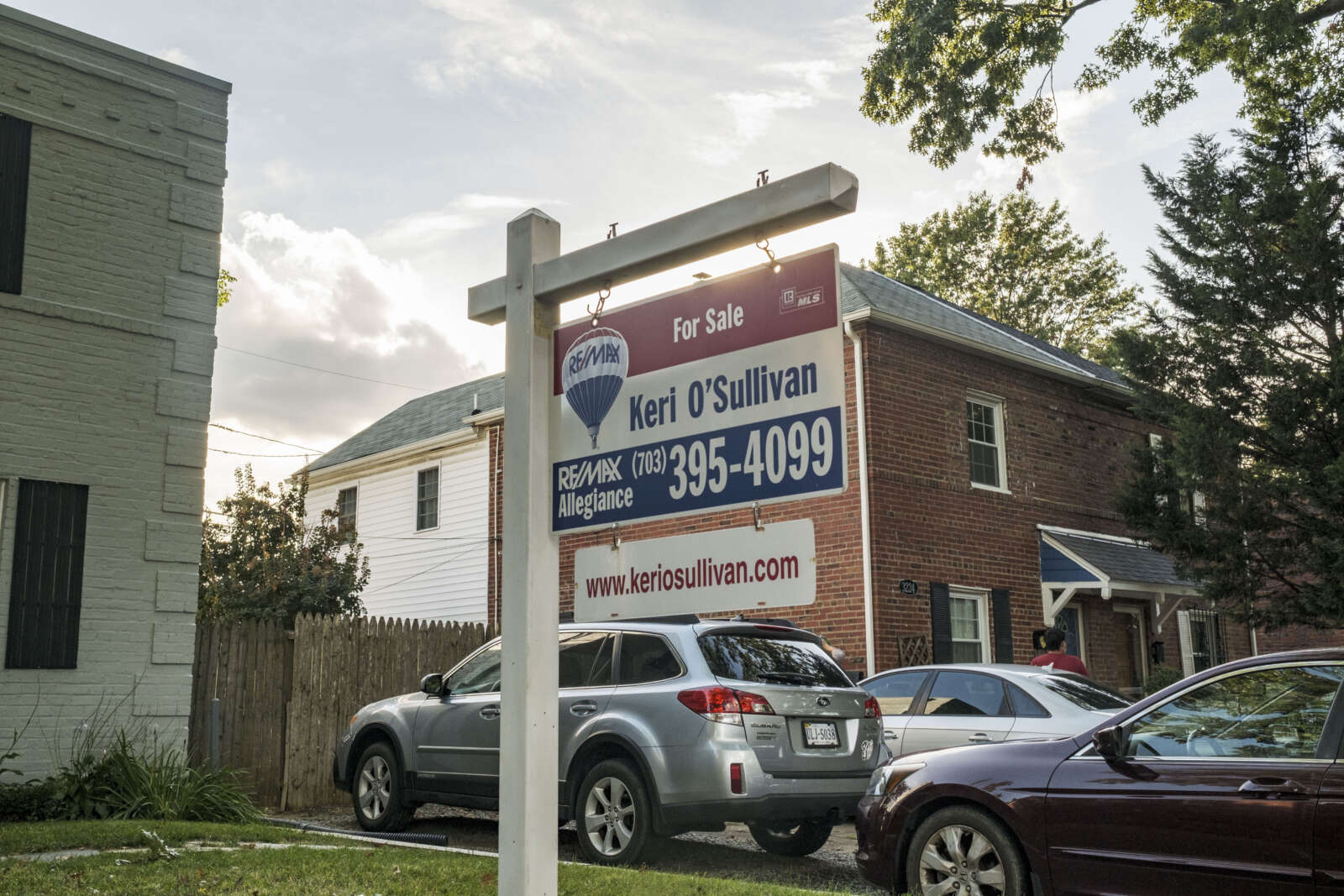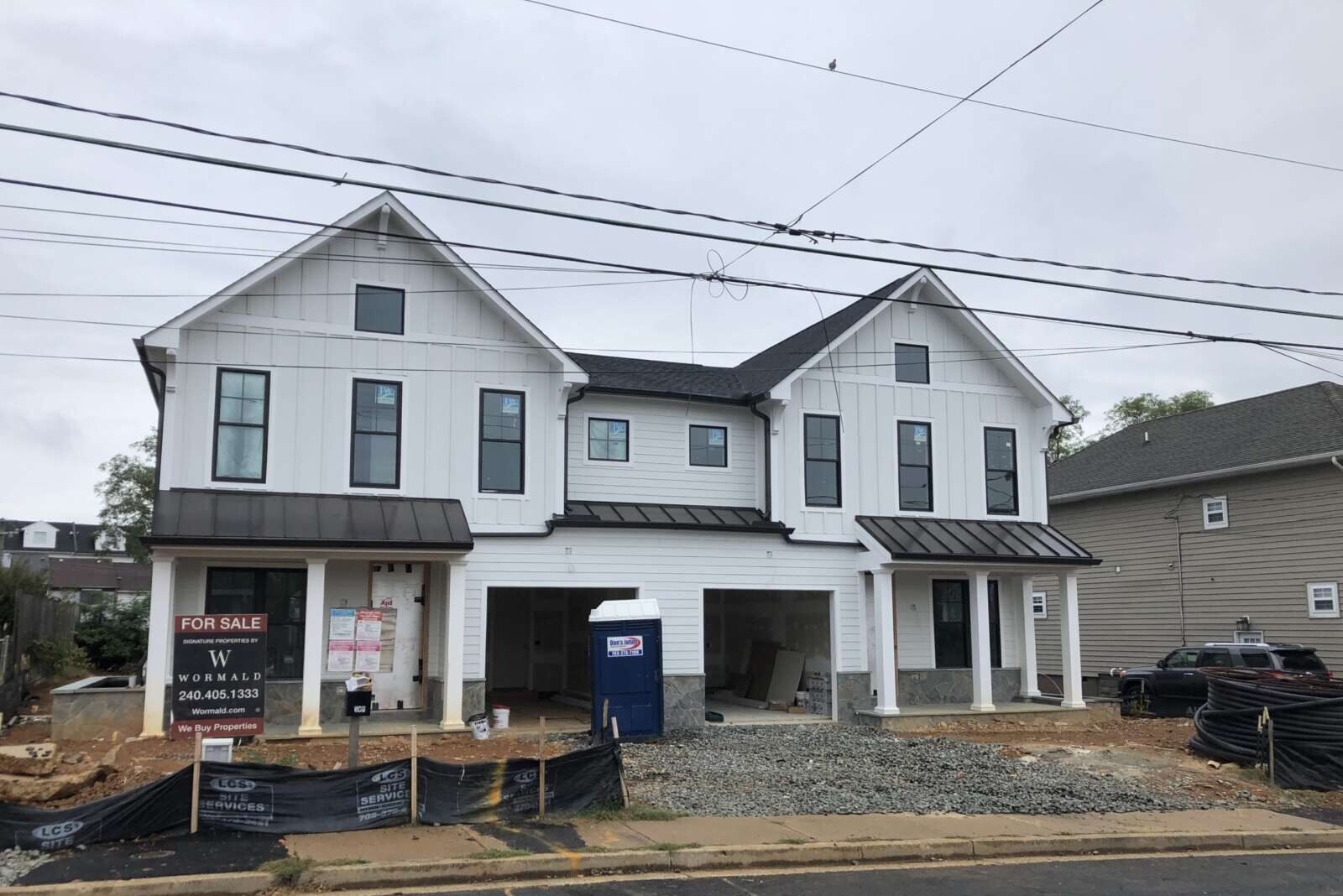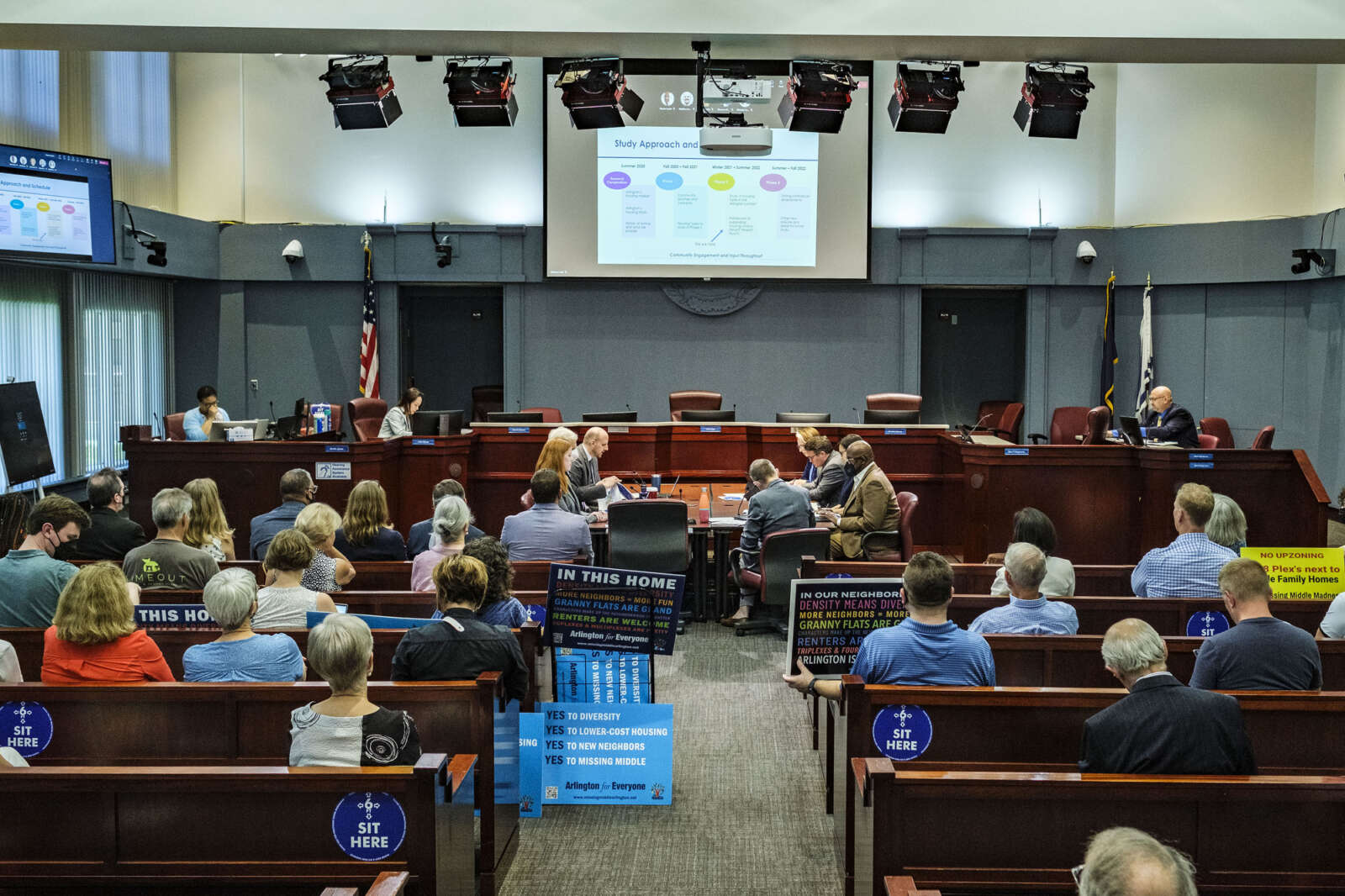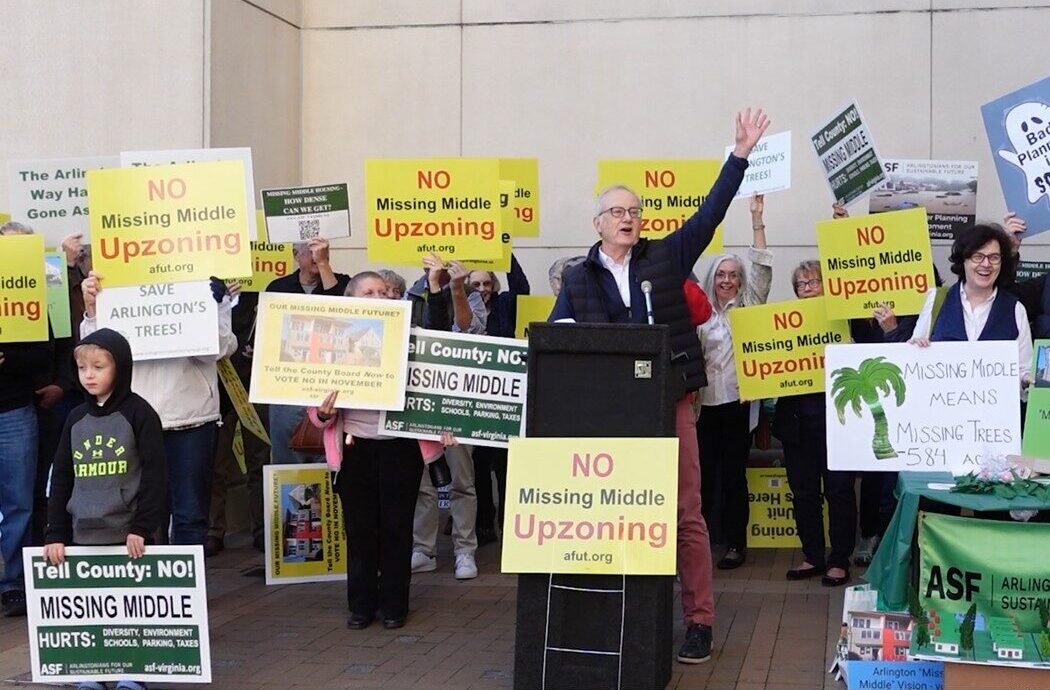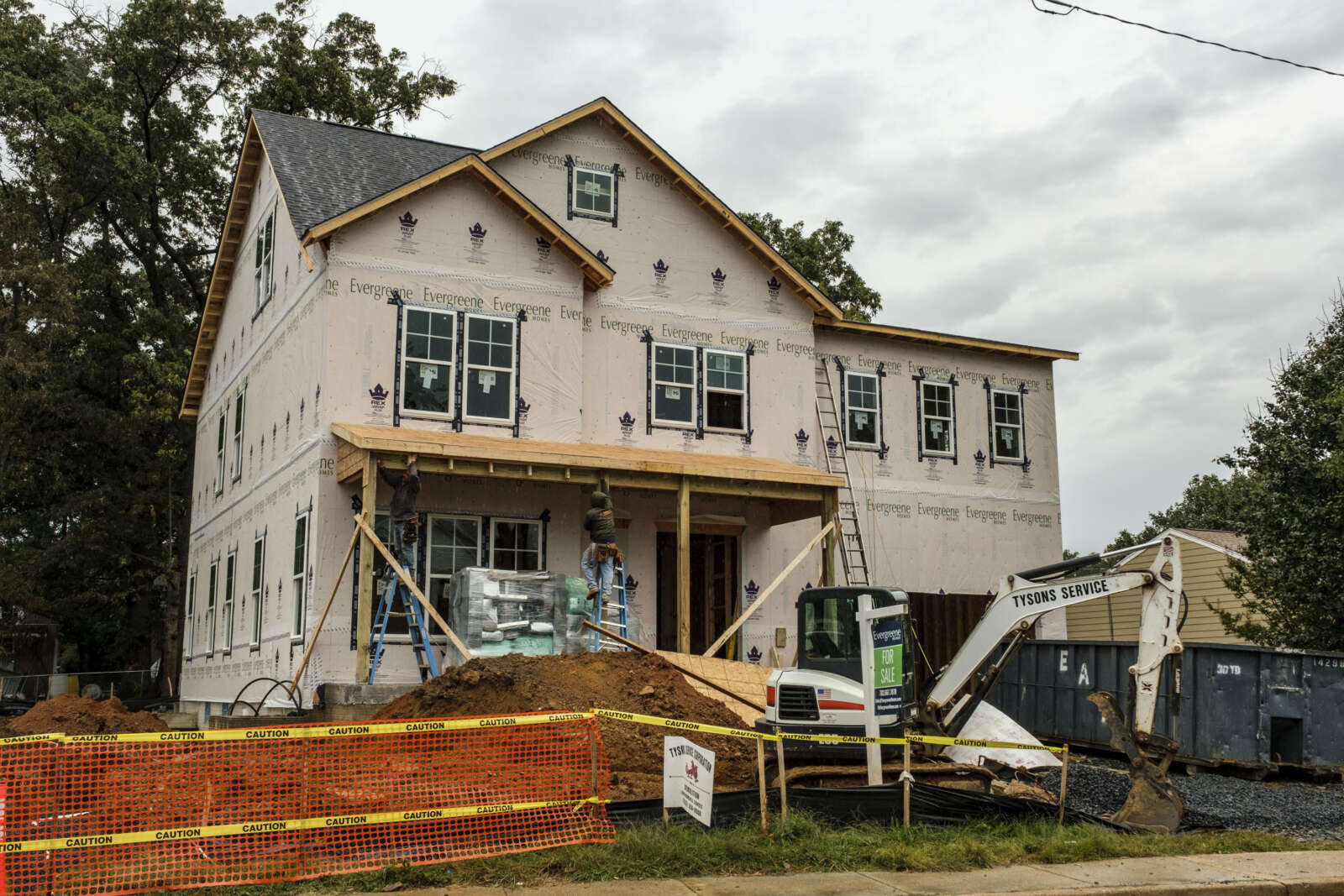Proposed Missing Middle zoning code changes are set to go before the Arlington County Board for a first look on Saturday.
The Board is slated to review a request to advertise public hearings on a proposal to allow the by-right construction of duplexes, three-unit townhouses and multi-family buildings with up to six or eight dwellings on lots of up to one acre in Arlington’s lowest-density zoning districts.
The proposal includes several options for regulating the number of so-called “expanded housing option uses” (EHOs) built per year, their density and size, and parking and tree canopy coverage.
If Board members approve this request to advertise (RTA), the Arlington County Planning Commission and the County Board will have two months to pick a slate of regulatory mechanisms before holding hearings and, potentially, adopting the proposal in March.
Ahead of the request to advertise, Arlington County warned that speaking times may be shortened on account of the intense public interest in the wide-ranging changes.
“If 75 or more speakers sign up to speak on one item, speaking times will be reduced to 2 minutes for all individuals and 3 minutes for all organizations,” the announcement said. “Speakers will be notified if speaking times change.”
The County Board members adopted an ordinance allowing such time reductions last month, after droves of residents came out to speak about Missing Middle in meetings over the last year.
In addition to possibly shortening speaking times, the county will prioritize hearing from different speakers this month and in March.
“When people sign up to speak at the March public hearing, the Clerk’s staff will identify those that did not speak in January and place them first in the speaking order, followed by anyone that spoke did speak at the January hearing,” county spokesman Ryan Hudson said. “Anyone that signs up to speak will have the opportunity to do so.”
Ahead of the meeting, Missing Middle proponent group YIMBYs of Northern Virginia said this RTA has been years in the making. It says development under this plan will be as “distributed [and] gradual,” but that the county has to start somewhere.
“To further improve affordability, Arlington policymakers can revisit regulations such as height limits in the future, but they must start by legalizing up to 8 units per lot with minimal regulatory burdens, which requires maximum flexibility in the RTA,” the group said in a statement to ARLnow.
(YIMBY stands for “Yes In My Backyard,” the pro-building counterpart to the build-elsewhere-if-at-all NIMBYs, who generally reject that label.)
YIMBYs of NoVA highlighted other organizations supporting the proposal, including the Arlington branch of the NAACP, the Sierra Club and Virginians Organized for Interfaith Community Engagement (VOICE).
“Arlington faces a fundamental choice between growth and inclusion or stagnation and spiraling inequality,” the group said. “Continuing the status quo would be an unsustainable future for Arlingtonians, forcing more essential workers into long commutes and driving more young families to relocate, often to exurban sprawl.”
Arlingtonians for Upzoning Transparency (AFUT), which opposes the proposal, claims that the plan as written will:
- Make Arlington less diverse;
- Ignore the thoughtful views of experts and its own advisory groups;
- Are not needed to meet the Metropolitan Washington Area Council of Governments’ (COG) goals for housing in Arlington and lack the necessary analysis and planning to begin an iterative process;
- Leave behind low, moderate, and middle-income households — with a one bedroom unit in an 8-plex requiring a household income at 117% of AMI; and
- Are not integrated with our interconnected priorities for transportation, the environment, and job growth.
In a press release, the group said it came to these conclusions after engaging with analyses by former Planning Commission chairs, an economist, a realtor, a mortgage loan specialist, a consumer protection attorney, an engineer and attorney, and a real estate consultant — who spoke to some 500 attendees at a rally co-hosted by AFUT and Arlingtonians for Our Sustainable Future earlier this month.
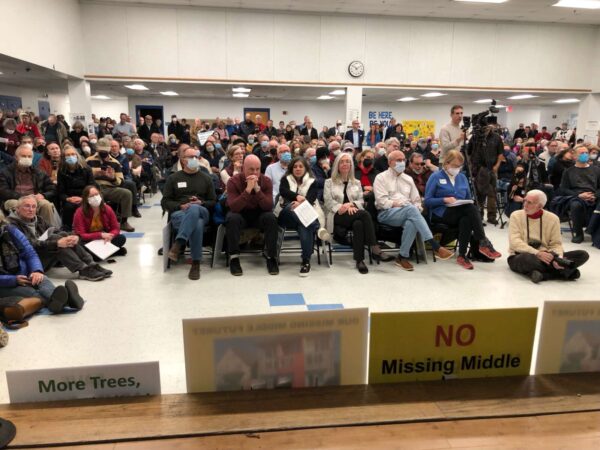
Their analyses “demonstrate that housing costs will increase as developers compete with individuals to purchase single-family homes,” AFUT said. “The developers will win that competition and replace smaller, more reasonably priced single-family homes with multi-family homes. Prices of single-family homes will increase through both the competition with developers and the decrease in supply of these homes. The units that will replace these single-family homes are not attainable for most Arlington residents.”
AFUT said those with whom the group consulted suggested other options for knocking down housing prices, ranging from low interest loans for first-time home buyers, tax credits, subsidies for closing costs, accessory dwelling units and office-to-residential building conversions.
Both county staff and the County Board, meanwhile, say that the current proposal and its several options for increasing tree planting regulations and limiting the size and density of EHOs respond to community concerns about tree coverage, stormwater runoff and over-development.
“The input from so many members of the Arlington community has shaped the options for text amendments that are now before you for consideration,” the County Board wrote to the Planning Commission last fall.


